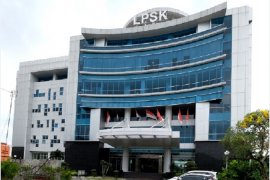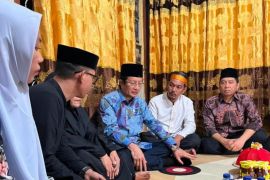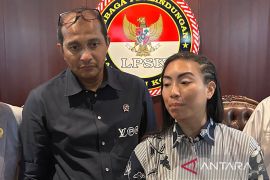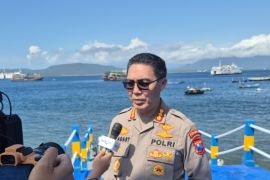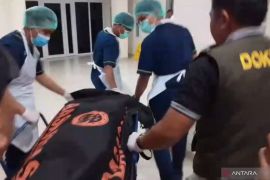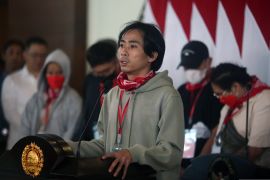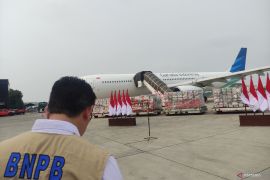The former army commando regiment officer (RPKAD) said President Soekarno had set up a fact finding team to assess the number of those who died in that massacre.
"Major General Soemarno, the then Minister of Home Affairs, reported as the chief of the team that the number of dead was only 80,000. The figure of 500,000 was first mentioned by Oei Tjoe Tat (then President Soekarnos aide)," he said.
Sintong said the 500,000 figure was illogical because RPKAD had only hunted down the leaders.
"Indeed, we had been deployed in Central Java and were helped by Ansor (Nahdlatul Ulamas youth wing) and Muhammadiyah (another major Islamic organization) members but we only arrested the key figures," he said.
He said those arrested were grouped into active and passive participants and those classified as passive were released.
"The RPKAD did not only carry out operations but also protected community members, including communist party (PKI) members," he said.
Psychologist Risa Permanadeli said the 1965 tragedy was not only about numbers but also about a culture of violence that the next generation may well inherit.
"The problem is that the issue has been lingering for 50 years and has not settled," he said.
A group of people from "Front Pancasila" organization held a demonstration to protest against the event, arguing that its theme was not in line with Pancasila (state ideology) values.
One orator, speaking at the demonstration near Hotel Aryaduta, where the event was being held, warned that the symposium had the potential to revive communism that had been banned in the country.
The organization also urged the government not to offer any apology to the victims of violence and massacre that occurred in 1965-1966.
The opening of the two-day symposium, that started on April 18, 2016, was attended by Coordinating Minister for Political, Security and Legal Affairs Luhut Pandjaitan, Home Affairs Minister Tjahjo Kumolo, Minister of Justice and Human Rights Yasonna Laoly and National Police Chief, General Badrodin Haiti.
Several national figures were seen at the event, including former general chairman of Muhammadiyah (one of the major Islamic organizations) Buya Syafii Maarif and Catholic priest Franz Magnis Suseno.
Luhut Pandjaitan, speaking at the opening of the symposium, made it clear that the Indonesian government wishes to settle cases of gross human rights violations, including the one related to the 1965 tragedy.
"There is a will on the part of the government to completely settle all human rights cases. We see that a resolution to the 1965 case will pave the way to settle other cases," he said, referring to an abortive coup attempt carried out ostensibly by the then communist party in 1965.
He said it was not easy to organize the symposium and many people accused the government of having been influenced by the communists and others.
He said President Joko Widodo has also expressed a wish to resolve all long-pending human rights cases in the country.(*)
Editor: Heru Purwanto
Copyright © ANTARA 2016
